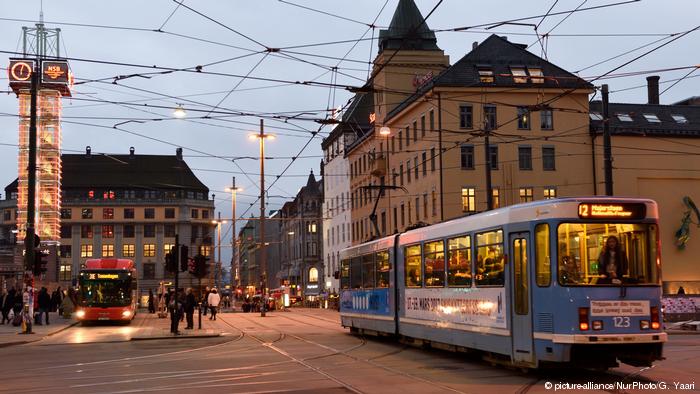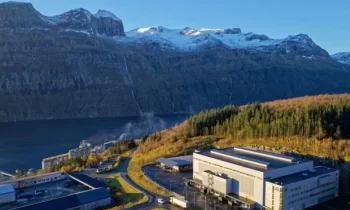Today, Oslo, the capital city of Norway, has officially become the 2019 European Green Capital. In 2019 and beyond, it will act as an ambassador for sustainable urban development, sharing and promoting best practices that have been tried and tested in this Norwegian city to inspire others to make meaningful environment changes.
At a ceremony in the world famous Nobel Peace Prize Hall at Oslo City Council, Karmenu Vella, European Commissioner for the Environment, Maritime Affairs and Fisheries, handed over the Green Book to Oslo’s Governing Mayor Raymond Johansen, to officially mark the start of the city’s year as European Green Capital 2019.

Karmenu Vella, European Commissioner for Environment, Maritime Affairs and Fisheries, said:“Any city can dream of being green, but it takes determination and political leadership to find solutions for the big environmental challenges we are facing today. That is what makes Oslo special. In a country known for its wealth of energy resources, Oslo is making great strides in transitioning to a society free of fossil fuel emissions. Its success in increasing public transport and prioritising people over cars is truly inspiring. Today’s events show how Oslo is approaching its role as European Green Capital 2019 – actively seeking to inspire and motivate other cities to go green.”
Governing Mayor of Oslo, Raymond Johansen, added: “We are very proud to officially become the 2019 European Green Capital. Combatting and adapting to climate change is the greatest challenge of our time and it can’t be left to someone else, at another time, in another place. In 2019, we want to invite the world to Oslo – to share and to learn together. We aim to use our European Green Capital year to spread knowledge, inspire and mobilise our citizens and businesses to make more environmentally friendly choices.”
Oslo’s European Green Capital 2019 programme has brought together almost 200 partners to deliver more than 350 planned events, ranging from large, international conferences to small neighbourhood events for locals, to engage the entire city.
Oslo’s Opening Ceremony and Opening Weekend as European Green Capital 2019 aims to celebrate the people of Oslo who, through their initiatives, creativity, innovative solutions and bold decisions, have made Oslo a role model for sustainable city development, as well as a better city to live in.
Why did Oslo win?
· The restoration of Oslo’s waterways: the city’s waterways have been subject to a new revolutionary strategy which has completely reversed the previous approach of enclosing rivers and streams to make space for a growing city. 3,000m of biodiversity-rich streams and rivers have already been re-opened in order to make them accessible to the public, facilitating the development and restoration of habitats and helping to efficiently manage storm water.
· The city aims to cut emissions by 36% (compared to 1990), by 2020, 95% by 2030 and to be carbon neutral by 2050.
· Zero emissions transport: the city has become the ‘Electric Vehicle Capital of the World’ with 60% of all new vehicles sold in the city being electric in the first half of 2018.
· Improvements in cycling and public transport infrastructure: 56% of all public transport journeys are powered by renewably energy on zero-emissions trams, train and metro, and public transport journeys have increased by 50% since 2007.
· Biogas produced from bio-waste and city sewage is used to fuel city buses and waste trucks.
· Oslo’s ‘Climate Budget’, an initiative consisting of 15 separate measures across five sectors, including energy/building, heating, transport, and congestion from other mobile resources and the maritime sector. The Budget counts carbon dioxide in the same way that a financial budget counts money, aiming to cut greenhouse gases by 36% by 2020.
· Citizen participation is an integral part of city planning process: Oslo pursued an active and innovative approach to connecting with and including its citizens in their plans.
· A ‘Business for Climate Network’ fosters cooperation between the city and its business community, citizens and NGOs in addressing the impact business operations have on the climate.



